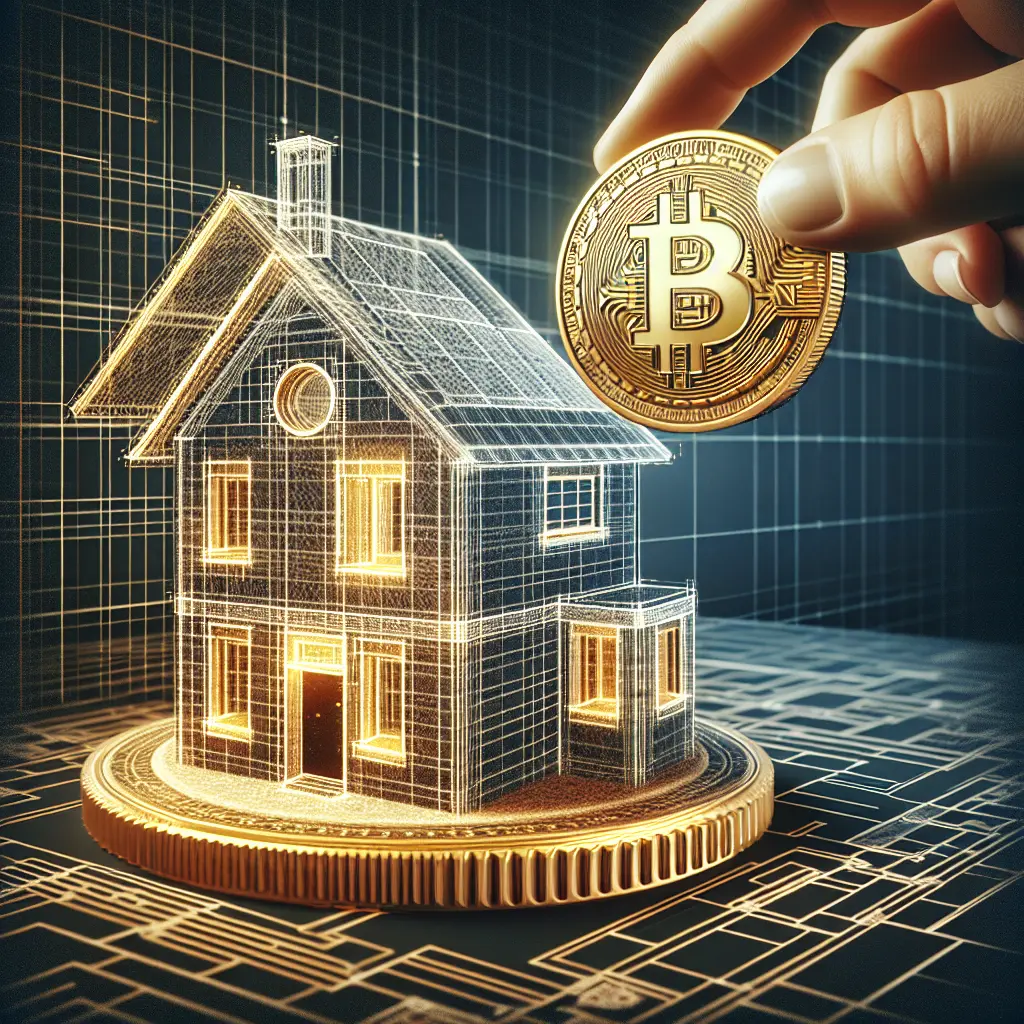
In recent years, the integration of cryptocurrency in real estate has become a transformative force, with Litecoin playing a pivotal role. As the digital currency landscape evolves, Litecoin is increasingly recognized for its potential in streamlining property transactions. This section explores the dynamic role of Litecoin in the real estate market, highlighting recent trends and updates that underscore its growing influence.
Litecoin's Emergence as a Preferred Medium
The convergence of blockchain technology and real estate has introduced innovative solutions that enhance transaction efficiency and transparency. Among digital currencies, Litecoin has emerged as a preferred medium for property transactions due to its speed and cost-effectiveness. Recent news indicates that while other altcoins like XRP are gaining traction in anticipation of a new altcoin season, Litecoin remains steadfast in its utility for real estate. Its adoption is fueled by its ability to reduce transaction costs and expedite closing processes, crucial benefits in a fast-paced housing market.
Cryptocurrency in Real Estate: A Growing Trend
As digital currency becomes more prevalent in property deals, investors are increasingly viewing Litecoin as a viable investment option. According to CoinDesk, Litecoin is on track to enter the crypto top 20, alongside RCO Finance and PEPE. This rise in stature highlights its growing appeal among investors seeking alternatives to traditional markets.
Litecoin Investment in Property: A Hedge Against Volatility
Investing in Litecoin for property purchases offers a hedge against traditional market volatility. In a world where financial markets are unpredictable, the stability offered by cryptocurrencies like Litecoin can be appealing. Moreover, the integration of blockchain real estate solutions ensures greater data integrity and streamlined operations, reducing the risks associated with conventional property transactions.
Case Study: Litecoin Real Estate Adoption
Consider the case of a real estate firm that adopted Litecoin for its transactions, witnessing a significant reduction in costs and transaction times. This firm reported that adopting cryptocurrency not only improved operational efficiency but also attracted tech-savvy investors who value innovation in financial systems.
Blockchain in Property Sales: The Role of Litecoin
Blockchain technology is transforming how property sales are conducted, with Litecoin at the forefront of this change. By leveraging blockchain, real estate transactions can be executed with unparalleled transparency and security. This shift is gaining momentum as professionals recognize the benefits of integrating digital currency into real estate processes.
The Challenges and Opportunities Ahead
While the integration of Litecoin into the real estate market presents numerous opportunities, it also poses challenges. For professionals and investors, understanding the nuances of this evolving sector is crucial. The ongoing developments in cryptocurrency property deals require staying informed about regulatory changes and technological advancements.
Recent Developments and Future Prospects
In August 2023, despite facing stiff competition from newer cryptocurrencies like Hybrid DTX Exchange (DTX), which outperformed it in a choppy market source, Litecoin's established infrastructure continues to make it a reliable choice for real estate transactions. As we look ahead, the role of Litecoin in real estate innovation is set to expand further.
The question remains: How can professionals leverage this trend? By embracing Litecoin real estate benefits, they can position themselves at the cutting edge of market innovation. Whether through direct investment or by integrating blockchain solutions into their operations, the potential rewards are significant.
Conclusion: The Transformative Role of Litecoin in Real Estate
In summary, the integration of Litecoin into the real estate sector is not just a fleeting trend but a transformative force reshaping property transactions. Litecoin's speed, cost-effectiveness, and security have made it a preferred choice for property deals, demonstrating substantial benefits in terms of reducing costs and expediting transactions. As the convergence of blockchain technology with real estate continues to evolve, Litecoin stands out for its capacity to streamline processes and enhance transparency.
The growing interest in cryptocurrencies like Litecoin as an investment hedge against traditional market volatility further underscores its potential. The shift towards digital currency in property sales offers both opportunities and challenges, requiring industry professionals to stay informed about regulatory changes and technological advancements.
Moreover, the case study of a real estate firm adopting Litecoin showcases the tangible benefits of embracing cryptocurrency, such as improved operational efficiency and attracting tech-savvy investors. As the landscape of real estate investment transforms, professionals who leverage these innovations will position themselves at the forefront of market development.
Looking ahead, the prospects for Litecoin in real estate are promising. Despite competition from newer cryptocurrencies, its established infrastructure remains a reliable choice for property transactions. The ongoing exploration of these trends will be crucial for anyone involved in this dynamic sector.
In conclusion, Litecoin's pivotal role in revolutionizing real estate transactions highlights the importance of staying abreast of digital currency advancements. Whether through direct investment or integrating blockchain solutions into operations, embracing these changes could yield significant rewards.
As we continue to navigate this evolving landscape, I invite you to share your experiences or thoughts on how Litecoin and other cryptocurrencies are impacting your real estate ventures. Let's engage in this exciting conversation and explore the future possibilities together.
Until next time, keep innovating and investing wisely.
Author: Emily Carter